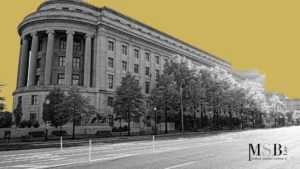
On April 23, 2024, the US Federal Trade Commission issued a final rule banning many noncompete agreements nationally, with some exceptions. This came months after California led the charge with Senate Bill 699 and Assembly Bill 1076, which went into effect on the first of this year. The FTC estimates that by freeing employees from the clutches of noncompete clauses, more than 8,500 new startups will be created per year, as well as an average annual pay increase of $524.
The FTC’s change is expected to have the biggest impact in the tech sector, which some people claim unfairly binds employees to what they call an “exploitative” practice in order to protect intellectual property. But despite some people’s fear that banning noncompetes will let businesses’ hard-earned trade secrets leak out to their competitors, some recent scholarship concludes that banning these agreements may not lead to an increase in trade litigation.
So, noncompetes are DOA, business will be booming, and everyone’s trade secrets are safe. Right?
Well, it’s not that simple.
Who is exempt from the ban on noncompete agreements?
Not every employee is free from the limitations of a noncompete agreement just yet. As one example, under the FTC’s new rule, existing noncompetes for senior executives, defined as those earning more than $151,164, can remain in effect. However, employers may be prevented from enforcing any new noncompetes, even for senior execs. While the FTC says this number represents less than .75% of the working population, this still opens the door to litigation for those who are uninformed.
When does the noncompete ban take effect?
Despite news headlines everywhere announcing the end of noncompete agreements, they are not truly over…just yet. The FTC’s final rule was not scheduled to take effect until 120 days after it was published in the Federal Register. That means the earliest possible date we could have seen the ban take effect would have been August 22, 2024. However, a court decision on August 20, 2024 (Ryan LLC v. Federal Trade Commission), ruled that the FTC’s noncompete rule is unlawful and ordered that the FTC’s noncompete rule shall not take effect against any company nationwide.
Are there any alternatives to a noncompete agreement if the ban is upheld?
If the ban on noncompetes is eventually upheld, there are still many other ways businesses can protect themselves from having their hard-earned trade secrets leaked to their competition or otherwise out of their hands or from other actions that could harm their competitive advantage. Trade secret laws, non-disclosure agreements (NDAs), other confidentiality agreements, and non-solicitation agreements are all ways to protect well-meaning employers. According to the FTC, research estimates that over 95% of workers who signed a noncompete agreement additionally signed an NDA.
What will the noncompete ban mean for employers if enforced?
The FTC’s final rule would require employers to provide clear notice to employees (“workers”) that their noncompete clause cannot and will not be legally enforced before the effective date. Long-term, the ban could encourage employers to distinguish themselves from competitors through comprehensive benefits packages and a positive, productive working environment. For workers, the ban is freeing. For employers, it will be imperative to adopt updated policies to continue protecting important confidential information and competitive advantage without violating the law.
What should employers do next?
Employers should stay apprised of any updates related to this FTC ruling. We expect this issue to be tied up in litigation for some time, but the situation can quickly change. Business owners who want to stay out of the courts will want to stay informed and be ready to pivot during any time of transition.
The FTC believes their proposed rule is largely promising, freeing workers from restrictive clauses that pin them to an unhappy job and giving them, in the words of the FTC Chair Lina M. Khan, “the freedom to pursue a new job, start a new business, or bring a new idea to market.” By eliminating noncompetes, the FTC hopes to foster healthy competition that fosters innovation from new voices. However, as with any form of change, there can be confusion and unintended consequences. Employers and employees alike who have questions about how the latest FTC ruling affects them should always feel comfortable reaching out to an attorney who specializes in business and corporate law.
Have questions about the status of the FTC’s final rule banning noncompete agreements nationwide? The team at MSB Law has been in your shoes. We’re business owners ourselves, and we know how challenging changing federal regulations can be, especially for business owners to understand and navigate. Contact us or give us a call at 913-839-2808. We would welcome the opportunity to serve as your trusted legal counsel for all your business law needs.
